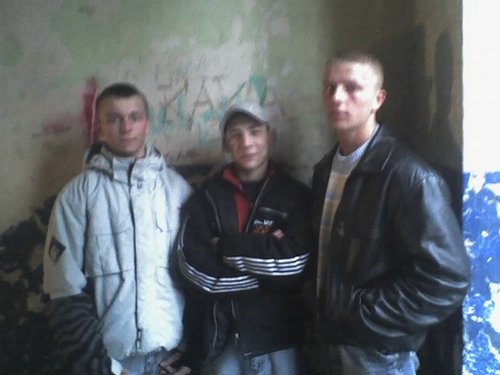One of the biggest conflicts in Poland after 1945, between Polish nationalists and Arabs. The Kebab War resulted in worsening the Polish-Arab relations and a decrease in kebab production. I’ve written jokingly about it so it’s not boring to read.
Sides of the conflict:
-13th Nationalist Division
-Osman Empire (ISIS), Police
Forces:
• 13th ND:
-Sebixes
-ONR
-Młodzież Wszechpolska
• Osman Empire:
-All sorts of Arabs
-Police support
-Kebab booth owners
Losses:
• 13th ND:
-Daniel from Ełk’s death
-Wasted gasoline
-28 Sebixes got imprisoned
-845 Orlen points
• Osman Empire
-2 Cola botles
-Many destroyed kebab booths
-2 janissaries in prison
Course of the war:
- Tunisian Provocation: The direct cause of the outbreak of the war was the so-called Tunisian provocation from Prince Kebab, when two sebixes noticed two bottles of Coca-Cola. One of them, named Daniel, took the drinks out of the bar. Immediately afterwards, a Tunisian and an Algerian ran after the 21-year-old. The Tunisian, armed with a knife, stabbed Daniel instead of lamb. When the immigrants returned to the meat, the second Pole allowed himself to be provoked and threw a flare.
- Battle of Prince Kebab: Immediately after the Pole was murdered, the residents of Ełk took to the streets, armed with telescopic batons, flares, firecrackers, stones and sweatshirts with an insurgent anchor (1944 units). The 13th Nationalist Division accepted every Pole into its ranks. On the other side of the barricade stood the police, who had formed an alliance with the Algerian. On January 2 at 1 p.m. the police used tear gas and detained the commander hiding under the pseudonym Seba. Seba’s soldiers surrendered and withdrew from two kebab stands. The battle lasted only two days, but it went down in history as the first armed conflict in the 21st century between the followers of Allah and the followers of John Paul II.
- Wrocław joins the war: While the ceasefire treaty was signed in Ełk, another hotbed of war flared up in Wrocław. The first attack by the Sebixes took place on January 2nd at the Kebab House restaurant on Jedności Narodowej Street. A group of Cichociemni Sebixes broke the window in a restaurant belonging to a Kurd. A little later, an unknown group of Cichociemni Sebixes broke the window in a kebab shop on Prusa Street, and then proved that their work was simply burning in their hands by throwing a bottle of petrol into the booth. The floor in the shop caught fire slightly. The damage was estimated at 845 points, because the only thing that went up in smoke was a card for collecting points in the Orlen petrol station network, which one of the Cichociemni had lost. The owner of Kuki Pizza was an Egyptian – from that moment on, Egypt joined the war.
- American help: The election of Donald Trump as president made Americans feel pride, responsibility and hatred towards all Arabs again. Donald Trump announced in a special address that before visas were lifted, he would send supplies of Coca-Cola and flares to the front. Unfortunately, patriots had to wait, because Barack Obama formally ruled for another two weeks. Instead of help, a second Yalta emerged.
- The finale: The real day of anger came on January 7th. At that time, the Sebixes began the “Day without a kebab” operation, which spread like an avalanche across the country. The other side mobilized forces, which bought kebabs with hot sauce in masses. A certain businessman from Częstochowa joined the “Day without a kebab” operation. For this purpose, he set up his own kebab stand. Interestingly, the owner of the new place focused on patriotic fast food (e.g. pork kebab). The Sebixes praise the place because the seller offers three sauces: mild (Uhlan), slightly spicy (Armored) and hot like GROM. The burnout of forces, lack of support and decreasing interest in Ełk by Poles led to a drop in the morale of the Sebixes. After a tactical retreat, the Sebixes announced a ceasefire in the French food truck of the Compiègne brand.
Consequences
In the Fourth Polish Republic, heated discussions began in the media, the subject of which was the growth of Arabs. According to sociologists, The Kebab War could lead to the creation of a new society based on an aversion to lamb and glorifying pork and pierogis.
